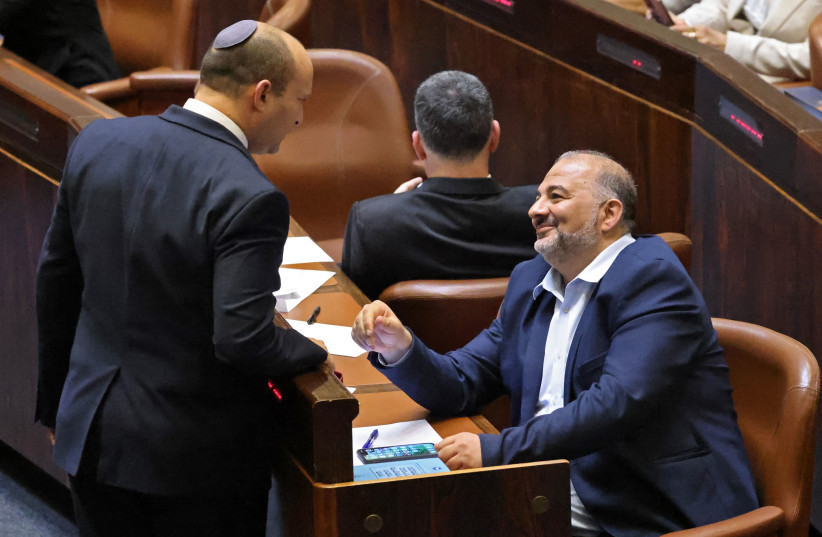It's been one year since Prime Minister Naftali Bennett's coalition government was formed, and despite the celebrations, most business owners at the Mahaneh Yehuda market in Jerusalem were more concerned about the rise in the prices of fruit and vegetables.
Hitting where it hurts
Ahmed, who sells fruits and vegetables at the Shuk, said feels as if everything has taken a turn for the worse. “We might as well have kept Netanyahu in the office instead of switching everything up.”
As a small business owner, Ahmed said that prices have risen and he has been having trouble keeping his business afloat.
Eight parties, occupying varying positions on the left-right spectrum and even including nationalists and an Arab party, have, for now, entrusted the country in Bennett's hands. Foreign Minister Yair Lapid is set to take over the role in November 2023 as alternate prime minister.

Eden Caplan, a waiter at Craft Pizza, said they have no interest in understanding what the government does for the Israeli people. “I know they [the government] have nothing to offer.”
The coalition is hanging by a thread
Just last week, the government sustained a loss at the hands of the opposition when two members of the coalition voted against a law to support Israeli settlements in the West Bank. This is the first time that this law has failed to pass since 1967 when Israel granted legal rights to Israelis in the West Bank.
The opposition, which supports the law ideologically, voted against this law simply because it disapproves of the coalition. Notably, the opposition’s move could come at the expense of Israelis in the West Bank.
Esther Barski, a student, said she believes that although this issue is important, “at least the Arabs are involved now.”
Barski stated that she is not too involved in politics and that because she is a student she does not believe that politics affects her life significantly.
“Although this is my case, I hope that change will progress and won’t go back in time. Before the coalition [was formed,] we were stuck in one place, and at least now I somewhat have hope for the future.”
Esther Barski
Bennett and Lapid had the idea to create an inclusive government that allowed an Arab party more say over the general population of Israel.
